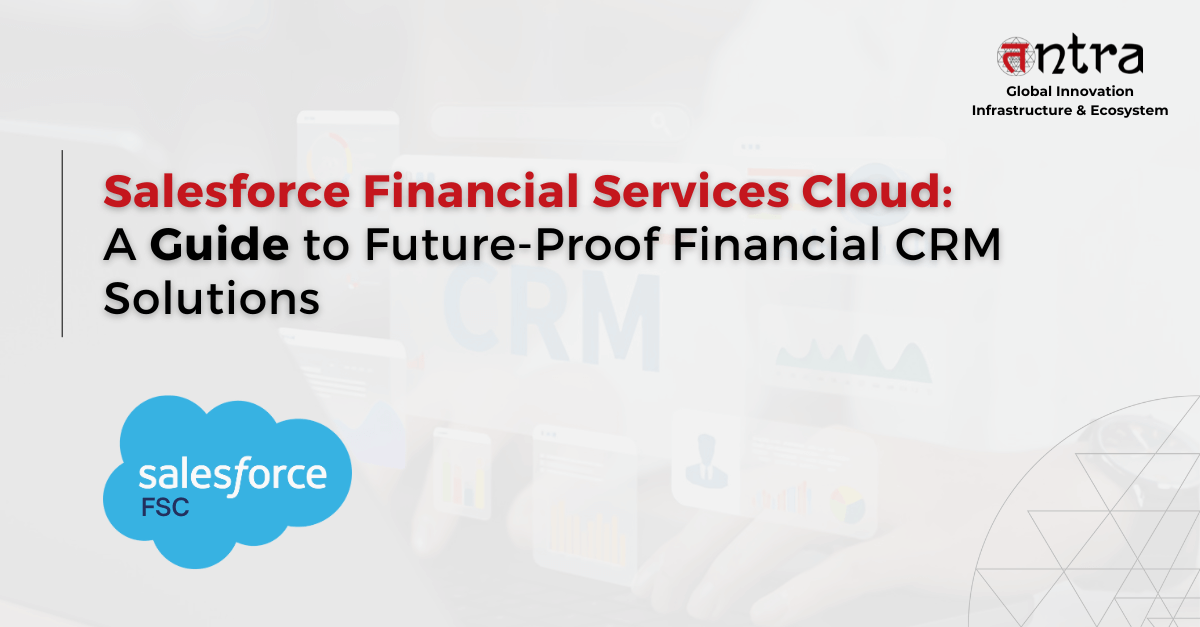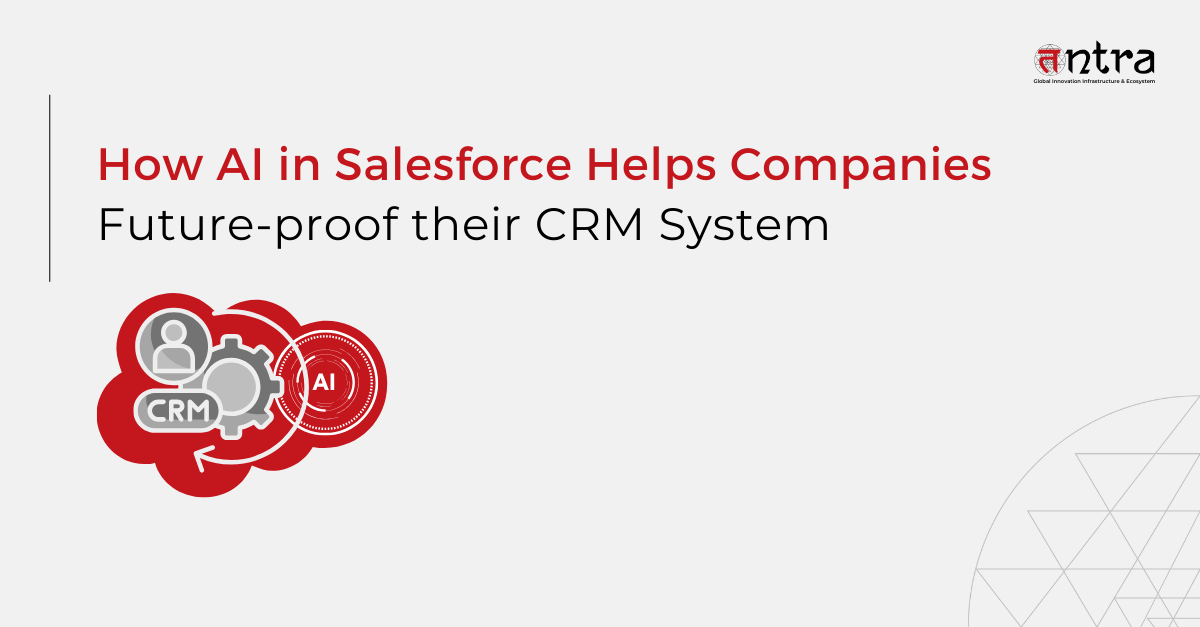
Complete Guide to Salesforce Financial Services Cloud
Table of Contents
ToggleSalesforce Financial Services Cloud (FSC) is tailor-made for banks, insurers, wealth managers, and anyone else handling money in a hyper-competitive world. With real-time insights, automated compliance, and a 360-degree view of every client, Financial Services Cloud cuts through archaic workflows like a hot knife through butter. You’ll centralize financial services data, eliminate repetitive tasks, and finally focus on what matters most: deepening relationships and boosting revenue. It’s time to swap outdated legacy systems for a future-proof CRM platform built to keep pace with your ambitions.
The financial services sector is navigating a landscape of evolving regulations, discerning clients, and emerging competitors. To thrive, institutions require a CRM that transcends basic contact management and fundamentally transforms business operations. Salesforce Financial Services Cloud (FSC) offers such a solution, enabling firms to deliver personalized customer experiences through its advanced cloud capabilities. By focusing on Maximizing Salesforce ROI, financial institutions can leverage FSC’s features—such as AI-driven insights, process automation, and seamless integration—to enhance efficiency, drive growth, and achieve a higher return on their CRM investment. Embracing these strategies ensures that the adoption of Salesforce FSC translates into tangible business value.
Consider this your go-to Guide to Salesforce Financial Services Cloud and all the benefits of Salesforce Financial Services Cloud for banks, wealth management firms, insurance providers, and beyond.
Overview of Salesforce Financial Services Cloud
Salesforce Financial Services Cloud is built to handle the nitty-gritty of finance: complex client profiles, compliance checks, and constant data juggling. Unlike standard CRMs that just track leads, FSC delves into every corner of your customer’s financial story.
Whether you’re advising high-net-worth clients or processing small business loans, Salesforce for banking and Salesforce for wealth management centralize data, reduce manual tasks, and amp up your team’s productivity.
If you’ve been searching for a robust financial services Salesforce platform, look no further.
Importance of CRM in the Financial Sector
Relationships are the cornerstone of financial institutions. A single negative experience can lead to client attrition. Implementing a robust Salesforce CRM for financial services goes beyond merely storing customer details; it orchestrates every interaction—from the initial email to the final signature. By leveraging the cloud financial services capabilities of Salesforce Financial Services Cloud (FSC), institutions gain real-time data and insights that anticipate customers’ next moves.
This approach is pivotal in Transforming Financial Institutions, enabling them to deliver personalized customer experiences without guesswork. Embracing data-driven financial relationships through FSC not only enhances client loyalty but also propels operational excellence.
Checkout Case Study: Empowering Financial Institutions with Salesforce FSC
What Is Salesforce Financial Services Cloud?
Definition and Purpose
Salesforce Financial Services Cloud solutions is a specialized finance cloud platform designed for the high-stakes world of financial services cloud computing. Traditional CRMs struggle with intricate portfolios, evolving regulations, and multi-faceted client engagements. FSC solves this by consolidating data into a single hub, providing a 360-degree view of each customer. Whether updating a loan application or setting up a complex trust fund, FSC keeps your entire team aligned.
Target Audience
Who’s this platform for? Essentially any organization working with money:
- Banks need a solid Salesforce CRM for financial services to manage loans, deposits, and customer engagement.
- Wealth Management Firms looking to track investments, plan portfolios, and spot new revenue streams.
- Insurance Companies are fed up with juggling cumbersome underwriting and policy documents.
- Asset Management Firms require a comprehensive view of financial deals data.
Key Benefits of Salesforce Financial Services Cloud
- Enhanced Collaboration: Front office, compliance, and back office teams all work off the same financial services cloud data model.
- Automated Compliance Processes: Built-in tools keep you audit-ready without drowning in paperwork, simplifying automating compliance processes with Salesforce.
- Personalized Customer Journeys: Real-time updates let you tailor services to each client’s unique situation, delivering a personalized customer experience.
- Flexible Integration: Salesforce wealth management cloud features integrate seamlessly with your existing systems and scale as you grow.
Benefits of Salesforce Financial Services Cloud for Banks and Financial Institutions
Why adopt another platform? FSC is more than just contact management—it’s about growing revenue, cutting waste, and delivering customer experiences everyone talks about.
Enhancing Customer Engagement
Improving Customer Satisfaction in Finance
Customers don’t want mass emails or generic pamphlets. They demand insights specific to their life stage or business needs. FSC actively aggregates client data, allowing you to send personalized offers exactly when it matters—like mortgage upsells moments after a client asks about home-buying tips.
Personalized Experiences Using FSC
Schedule timely calls or trigger automated updates using data analytics and automation. When you align with a client’s financial goals, you become a trusted partner, not just a vendor. Trust is the currency of finance, and a platform that helps you earn it is pure gold.
Streamlining Operations
Automating Compliance Processes with FSC Tools
Compliance nightmares wearing you out? FSC offers pre-built solutions for regulatory tracking, risk assessments, and document management. Automated workflows flag potential issues long before they become costly fines.
Enhancements in Operational Efficiency
With all data and tasks in one place, your team avoids double entries, lost notes, or confusion about responsibilities. Less admin work means more time for relationship-building and profit-boosting initiatives. In finance, speed and accuracy are king—deliver faster service with fewer mistakes, and you’ll outpace the competition.
Discover how Tntra’s Financial Services Cloud (FSC) for loan and mortgage management reduced loan processing times by 45%, improved customer satisfaction by 40%, and boosted operational efficiency by 35%. Read more.
Core Functionality of Salesforce FSC
By now, you know FSC does a lot. Let’s drill down into the marquee features that make it stand out:
- 360-Degree Customer View: Access assets, liabilities, life events, and risk profiles in one dashboard. Less toggling means faster decisions and a more integrated customer story.
- Intelligent Analytics Tools: Leverage Salesforce Einstein Analytics to spot trends, predict outcomes, and anticipate client needs—your data-driven crystal ball.
- Automated Monitoring: Set rules to sweep for compliance red flags—missing disclosures or suspicious transaction patterns—automatically.
- Documentation & Auditing: Every click and upload is recorded, giving you a clear audit trail when regulators come knocking.
Collaboration Tools for Efficiency
Team Communication
Integrate with Slack or use built-in Chatter to discuss client records in real time. Advisors, underwriters, and service reps collaborate without losing context.
Enhanced Coordination
Instant notifications for loan updates or investment plan changes eliminate “I thought you handled that” fiascos. Centralized collaboration isn’t just good for morale—it’s essential for efficiency and client retention.
Pricing and Certification Options
In the dynamic landscape of financial services, understanding the cost structure of Salesforce Financial Services Cloud (FSC) is essential.
- Pricing Models: Salesforce FSC offers various editions tailored to different business needs. For instance, the Enterprise Edition starts at $300 USD per user per month, while the Unlimited Edition is priced at $475 USD per user per month. These editions come with varying features and support levels.
- Cost Factors: Several elements influence the overall cost, including the number of integrations, data storage requirements, and the level of customization needed. A well-defined data strategy is crucial here. The critical role of data strategy in fsc implementation cannot be overstated, as it ensures efficient data management, compliance, and scalability, ultimately impacting the total cost of ownership.
- Implementation & Support: Beyond licensing, consider the expenses associated with professional services and ongoing support. Salesforce offers Success Plans like the Premier Success Plan, which costs 30% of net license fees and includes expert guidance, health checks, and 24/7 support. Underinvesting in these areas can lead to suboptimal solutions, while overinvesting without a clear strategy may not yield proportional benefits.
Certification and Professional Development
Salesforce Financial Services Cloud Certifications
Salesforce offers specialized credentials, such as the Financial Services Cloud Accredited Professional badge, which validate expertise in implementing FSC solutions with industry-specific data models. Having in-house or partner resources with these certifications accelerates deployment and minimizes trial-and-error.
Investing in Your Team
When investing in a robust platform like Salesforce FSC, it’s crucial to equip your team with the necessary skills. Salesforce Financial Services Cloud certification ensures your staff leverages best practices and advanced features. Embracing custom fintech solutions drive innovation by tailoring FSC to your organization’s unique needs can lead to enhanced customer experiences and operational efficiency.
For more information on the Financial Services Cloud Accredited Professional certification, you can refer to the official Salesforce resources.
Why Switch to Salesforce Financial Services Cloud?
Financial institutions face a tech tug-of-war between inflated client expectations and antiquated back-end systems. If you’re tired of fragmented legacy platforms, Salesforce Financial Services Cloud offers a finance-native CRM that fits your workflows rather than forcing you to adapt.
Addressing Challenges Faced by Financial Institutions
- Legacy Hurdles: Slow, manual processes from outdated systems. FSC end-to-end automation eliminates hours of data entry.
- Compliance Quicksand: Rapid regulatory changes can trip you up. FSC tracks requirements in real time, reducing risks and fines.
- Siloed Teams: Disparate insights across departments. FSC centralizes customer data, ensuring everyone works from the same playbook.
Benefits of Adopting FSC Over Traditional Systems
- Increased Engagement with FSC Tools: The Actionable Relationship Center (ARC) delivers precise portfolio insights, boosting cross-sell and upsell success.
- Streamlined Operations via Automation: Automated workflows for loan approvals, policy renewals, and more let your team focus on relationships, not paperwork.
Case Studies and Real-World Applications
When it comes to case studies on Salesforce implementation in financial services, these are more than talking points:
- Top Retail Bank: Integrated FSC with credit-checking systems, cutting loan processing times by days.
- Mid-Sized Insurer: Automated underwriting workflows, improving compliance and slashing manual effort.
- Wealth Management Firm: Used ARC to visualize client net worth, driving significant cross-sell conversions.
These success stories prove Salesforce Financial Services Cloud ROI is real—and substantial.
Key Outcomes Achieved Through FSC Adoption
- Improved Customer Satisfaction: Higher Net Promoter Scores (NPS) and trust through rapid, personalized service.
- Fewer Operational Bottlenecks: Seamless data processing and automated compliance checks streamline daily workflows.
- Better Cross-Selling Avenues: A 360-degree customer view enables targeted product pitches, eliminating “spray and pray” marketing.
Future Trends in Financial Services Technology with Salesforce
Innovations on the Horizon
Salesforce continues to evolve. Expect a wave of generative AI-powered features, deeper industry integrations, and advanced predictive analytics in FSC. The next few years will see financial AI woven into the platform for hyper-personalized experiences, automated risk assessments, and pre-emptive advice.
AI-Powered Personalization
Imagine an AI assistant that suggests portfolio adjustments before market shifts or alerts you to new regulations—directly on your mobile device.
Extended Integrations
From chatbots for retail banking to blockchain-enabled transactions, Salesforce for financial services will keep expanding its ecosystem to address emerging needs.
Final Thoughts
We’ve covered how Salesforce Financial Services Cloud delivers hyper-efficient compliance, customer-centric interactions, and powerful analytics—enabling banks, insurers, and wealth managers to overcome legacy roadblocks and accelerate growth. Features like ARC and automated workflows remove daily headaches, so you can focus on relationships and revenue.
If you’re ready to future-proof your financial institution with a CRM in the financial sector that’s built for finance, Salesforce Financial Services Cloud deserves your attention.
Partner with Tntra, a leading software product engineering company, to transform your financial services with Salesforce FSC. Our expertise ensures streamlined compliance, 360-degree insights, and enhanced customer engagement. Discover how Tntra can elevate your business.





